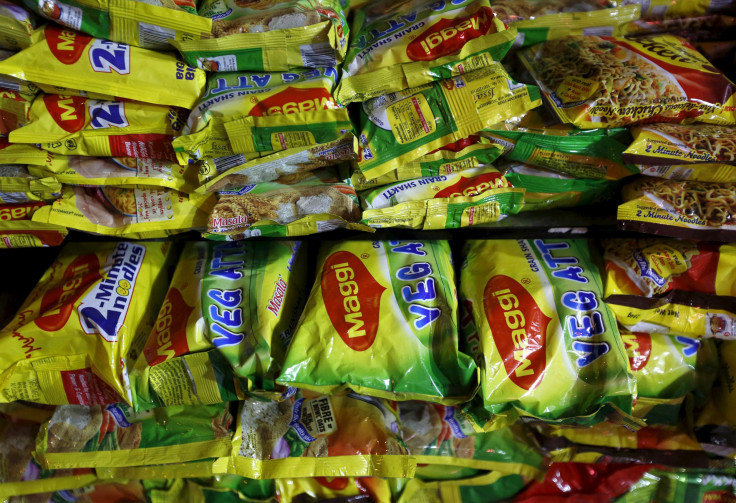Maggi Noodles Relaunched In India By Nestle After Recall, New CEO Calls Lead Tests ‘Highly Unreliable’

Nestle India Limited CEO Suresh Narayanan said Monday that tests in India, which showed that Maggi -- a hugely popular instant noodle product in the country -- had high levels of lead, were “highly unreliable,” the BBC reported. The comments came the same day that Maggi noodles returned to the Indian market after court-mandated tests in three separate labs last month found that the noodles were safe for consumption.
India's federal food safety authorities ordered the packaged noodles off the shelves in June after tests at the time found that it contained higher-than-permissible levels of lead and elevated levels of monosodium glutamate (MSG). The recall cost Nestle, which had disputed the findings, about $67 million and the Swiss company destroyed 400 million packets of the product.
“It has been a challenging period for the Nestle organization and therefore, there is a feeling of satisfaction at bringing back Maggi noodles to the market,” the company said, in a statement Monday.
Narayanan, who took over the position in August, told the BBC that labs, which tested the noodles, "had not been accredited,” adding that there was a possibility that they did not have people qualified enough to carry out such tests and lacked proper equipment.
Nestle is being sued by the Indian government for $100 million over allegedly misleading Maggi advertisements, something that Narayanan reportedly said was based on bad tests.
“Most states do not have a ban on the sale of Maggi noodles. For states where specific directions are required, we are engaging with them,” Nestle India said in the statement. It also announced that it is partnering with Snapdeal, a New Delhi-based retailer, to give out offers.
Nestle, which launched Maggi in India in 1983, has been grappling with a public relations crisis following the lead controversy. The "two-minute noodles" commanded most of the instant noodles market in the country.
"Maggi has managed to enter Indian homes to change the traditional food habits of Indian children on its promise of convenience. This brand has understood the psychology of Indian mothers and positioned itself for mother-child indulgence," the BusinessWeek magazine reportedly commented in 2006.
However, June's ban brought in mixed reactions from consumers. While some criticized Nestle's slow reaction to the crisis, others expressed sadness over the ban.
The company said Monday that the instant noodles are being manufactured at three locations in the southern state of Karnataka, northern state of Punjab and the western Indian state of Goa.
Nestle India stocks were up 0.5 percent Monday.
© Copyright IBTimes 2024. All rights reserved.





















